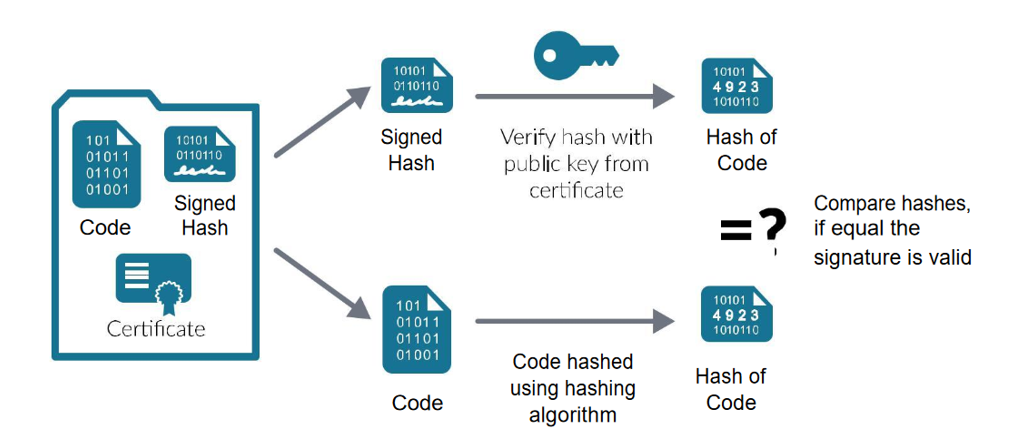Wondering how you can get an individual code signing certificate? Here’s your answer
If you’re thinking of protecting your software/code/app using an individual code signing certificate, you’re definitely thinking in the right direction. This is because of the two things a code signing certificate brings to the table: validity and code integrity.
- The former communicates to users that a verified, legitimate publisher is behind the software they’re about to install. Thus, it bridges the trust gap and helps you to establish credibility and increase your number of downloads.
- The latter assures users that the software hasn’t been tampered with and has stayed in the intended format since its creation.
But, wait, aren’t code signing certificates for businesses and organizations only?
Yes, usually, code signing certificates are used by organizations that create software. That’s there’s often a misconception that they’re only for companies and individuals (because they must legally register as an organization). Of course, this isn’t the entire truth. If you’re a lone wolf, you don’t need to register as a wolf pack (#PunIntended). You can get an individual code signing certificate for yourself that is just as valid as the ones that organizations get for themselves.
Let’s understand individual code signing certificates through some of the most commonly asked questions.
Is There Any Difference Between Individual Code Signing Certificates and Those Issued to Organizations?
No. At the end of the day, code signing certificates are code signing certificates. Their function is to sign the code using public key infrastructure (PKI), and it’s done the same way regardless of whether you’re an individual or a company. In other words, a code signing certificate is like a computer program that encrypts your code and doesn’t let anybody alter it except you. So, it doesn’t matter whether the software is created by a company or an individual programmer.

If There’s No Difference, Why Are They Classified Differently?
A crucial element of a code signing certificate is the vetting process that’s done before a certificate authority issues a code signing certificate. Needless to say, the verification process would differ for companies and individuals. And that’s why these certificates are issued differently for companies and individuals.
I Want to Issue a Certificate for Myself. What Will the Certificate Authority (CA) Verify?
Right now, Comodo is the only certificate authority that issues individual code signing certificates. The verification process conducted by Comodo requires you to provide three documents:
1) Government-Issued Identification,
2) Financial Documentation, and
3) Non-Financial Documentation.
The following documents are approved by Comodo:
- Government Identification
Verification (Any One):- Passport
- Driver’s License
- Personal ID Card
- Military ID
- Financial Document
Verification (Any One):- Credit Card Statement
- Debit Card Statement
- Mortgage Statement
- Bank Statement
- Non-Financial Document
Verification (Any One):- Utility Bill
- Lease Agreement
- Birth Certificate
- Tax Bill
Furthermore, you’ll also need to complete a telephone verification as well as a final verification call.
To learn more about the individual verification process, check out this article in our Knowledge Base.
Where Do I Purchase an Individual Code Signing Certificate?
At SectigoStore.com, we’re proud to share with you that we’re the only certificate authority offering signing certificates to individuals. When you purchase your individual code signing certificate directly through us, you can get it cheaper than anywhere else (we’re not boasting, we give you a price-match guarantee). Plus, you get all the support and assistance you need.
Save Up to 42% on an Individual Code Signing Certificate!
Get a code signing certificate made for individual developers, freelancers and start-ups from SectigoStore.com!
Shop Now